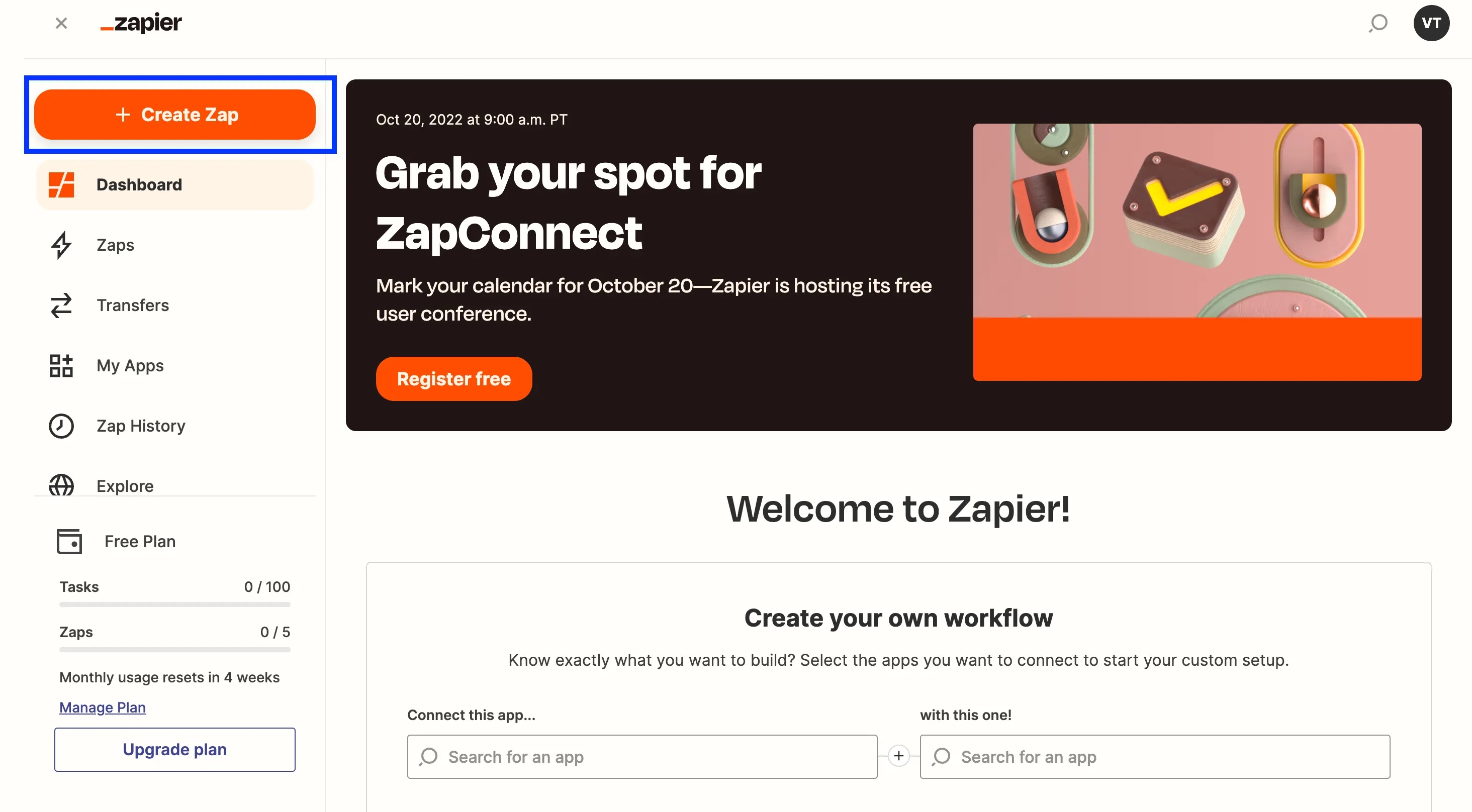Trusted by:
Updated: October 11, 2022
10 min read
How to integrate Certifier with Google Spreadsheets via Zapier?
Read this article if you would like to find out how you can connect Certifier with Google Spreadsheets or any other app via Zapier in under 10 minutes.
What is Zapier?
Zapier lets you connect Certifier with thousands of the most popular apps to automate your certification workflow. Among the available apps, one can find a lot of popular LMSs like Kajabi, Thinkific, Teachable, TalentLMS, survey & quiz tools like Google Forms, Typeform or Survey monkey, and many others.
Click here to see the complete list of apps that you can integrate with Certifier via Zapier.
How do Zapier integrations work?
Zapier lets you set up automated workflows called “Zaps” that pass information between two or more apps easily and quickly – no code required. A Zap consists of a Trigger and an Action. A trigger is an event that starts a Zap, an action is an event a Zap performs.
🤓 Let’s use an example:
You would like to automatically issue certificates via Certifier when a new row is added to your Google Spreadsheet. Using this example, a new row in Google Spreadsheet would be a trigger, while certificate issuance would be an action performed by a Zap.
What do you need to integrate Certifier with Google Spreadsheets via Zapier?
✅ Zapier account on a free or higher plan (create one here)
✅ Certifier account on a free or higher plan with at least one group.
Creating a Zap
Once you have signed up for Zapier, it is time to create your first Zap. In this article, we will explain how to set up an integration between Certifier and Google Spreadsheet via Zapier. The event “New Spreadsheet Row” in Google Spreadsheet will be used as a trigger, while the “Issue Credential” event in Certifier will be used as an action.
1. Log in to Zapier and press "Create Zap".
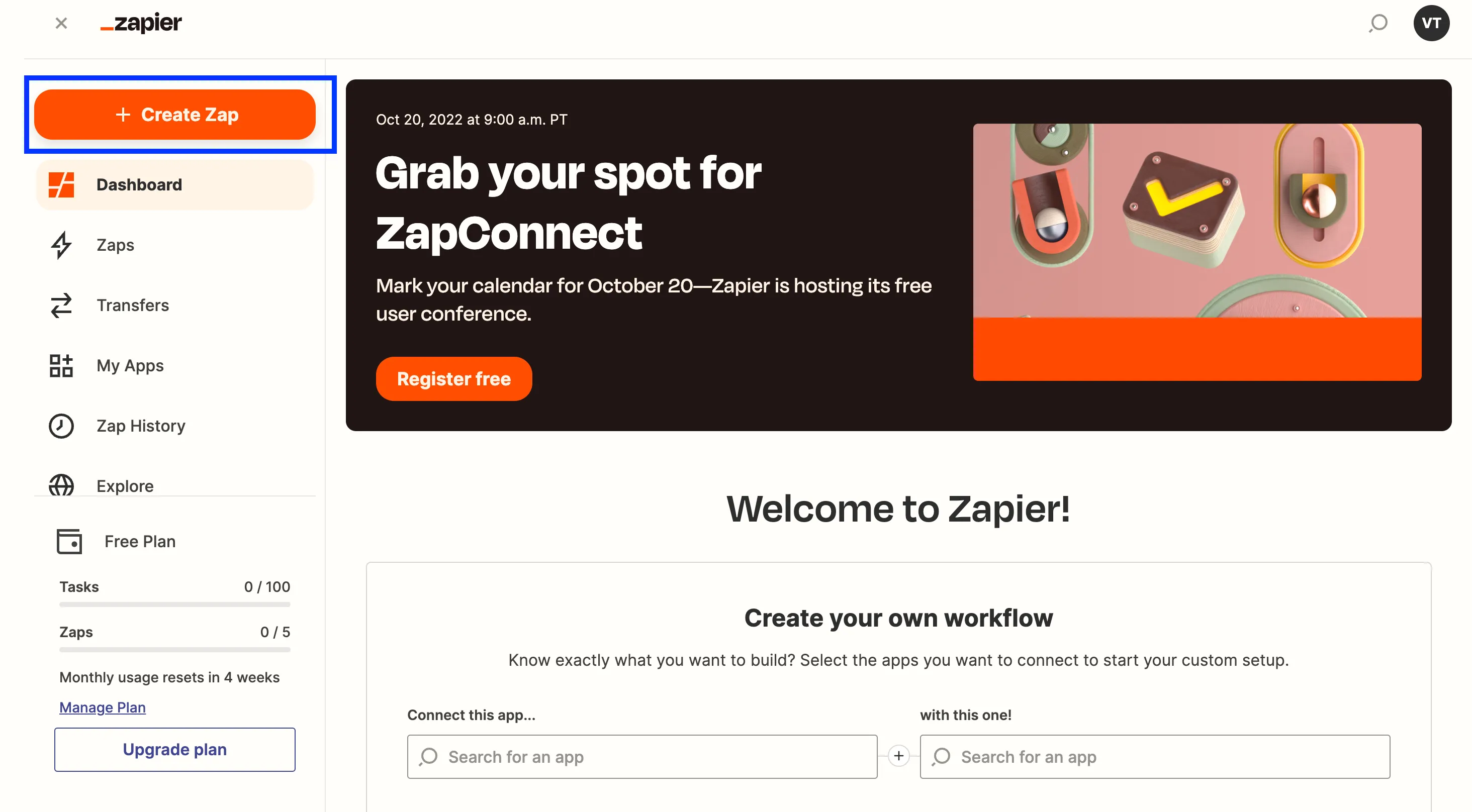
2. Start configuring a trigger:
Select an app you want to use as a trigger – Google Spreadsheets.
Select the event that should perform the trigger – “New Spreadsheet Row”.
Press “Continue”
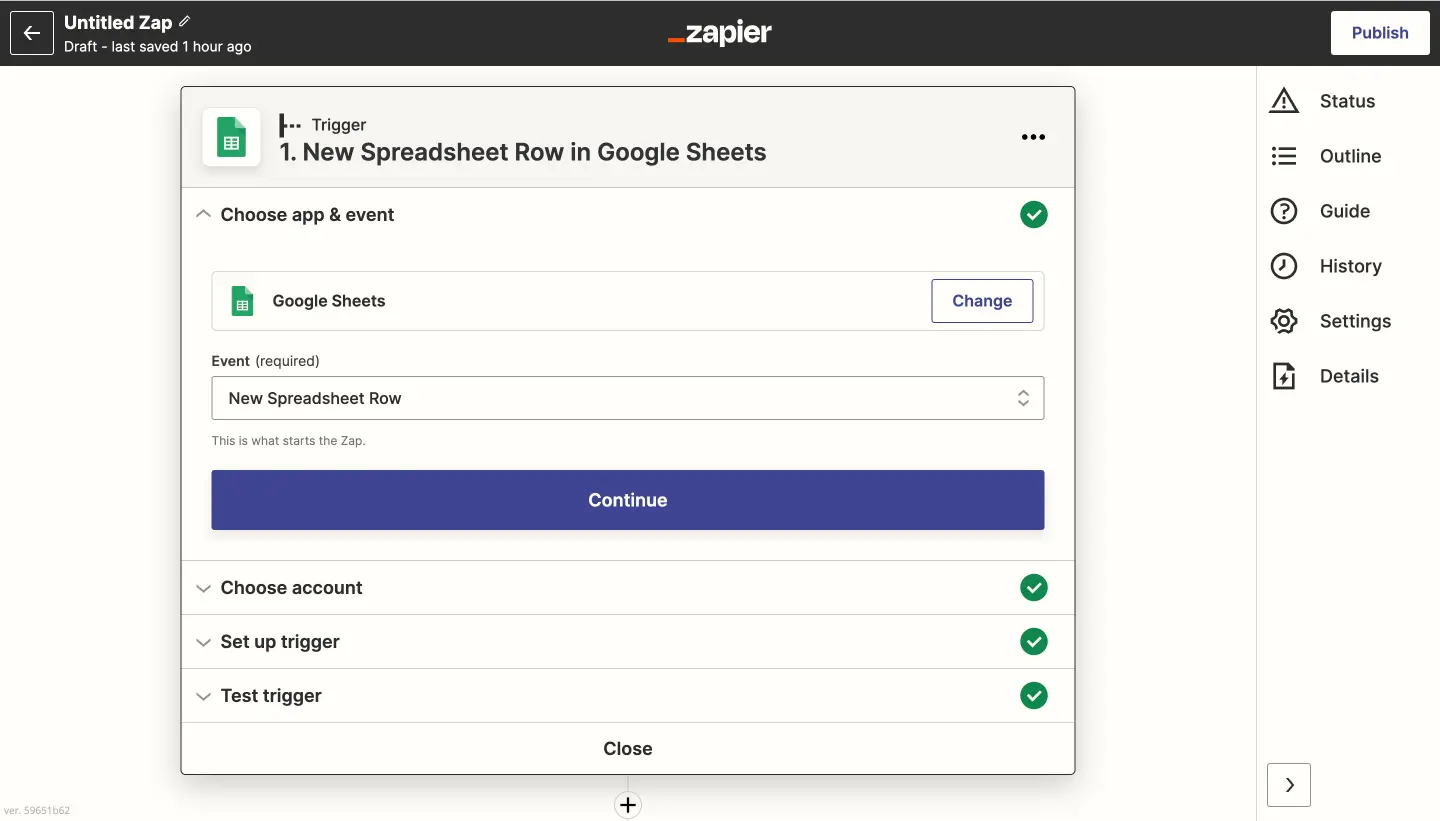
3. Choose the account you want to use for this automation and press “Continue”.
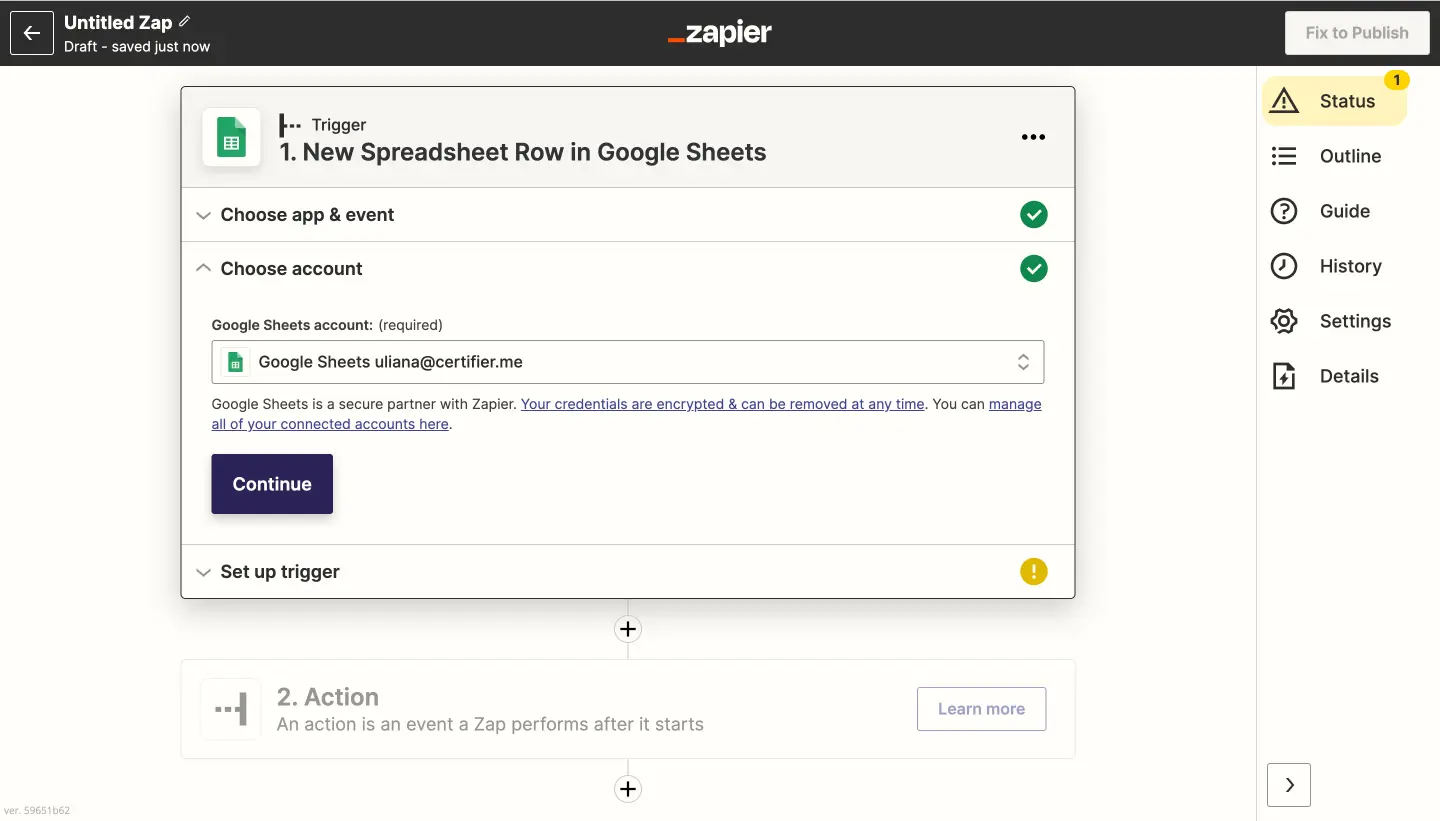
4. Follow this step by choosing a spreadsheet and worksheet you would like to use for this automation.
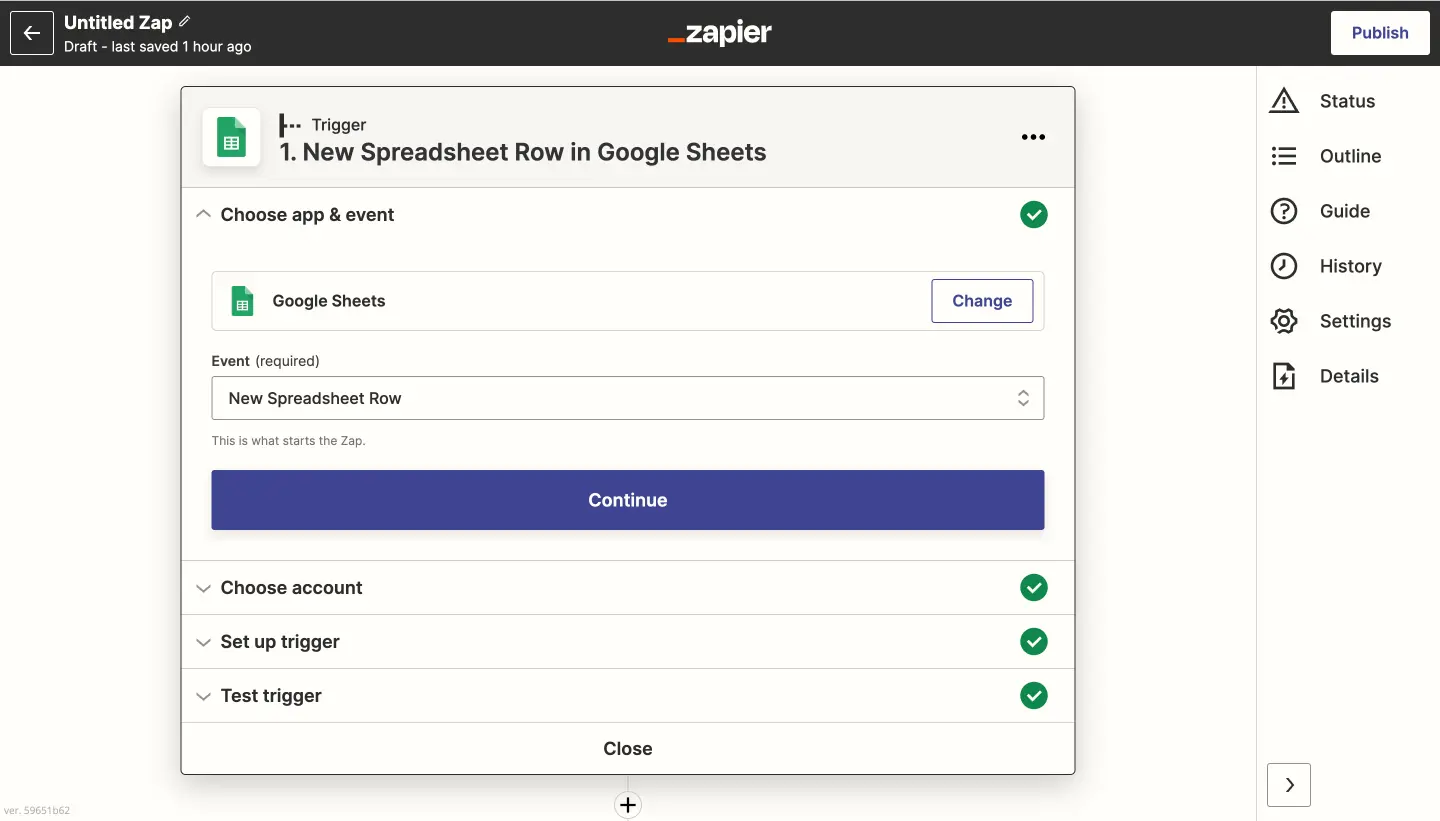
5. Finish the process of setting up a trigger by running a test. Running a test ensures that everything is set up correctly. The result of a successful test should look like this:
6. Move on to setting up an action.
Select an app you want to use as an action – Certifier.
Select the event that should perform the trigger – “Issue Credential”.
Press “Continue”
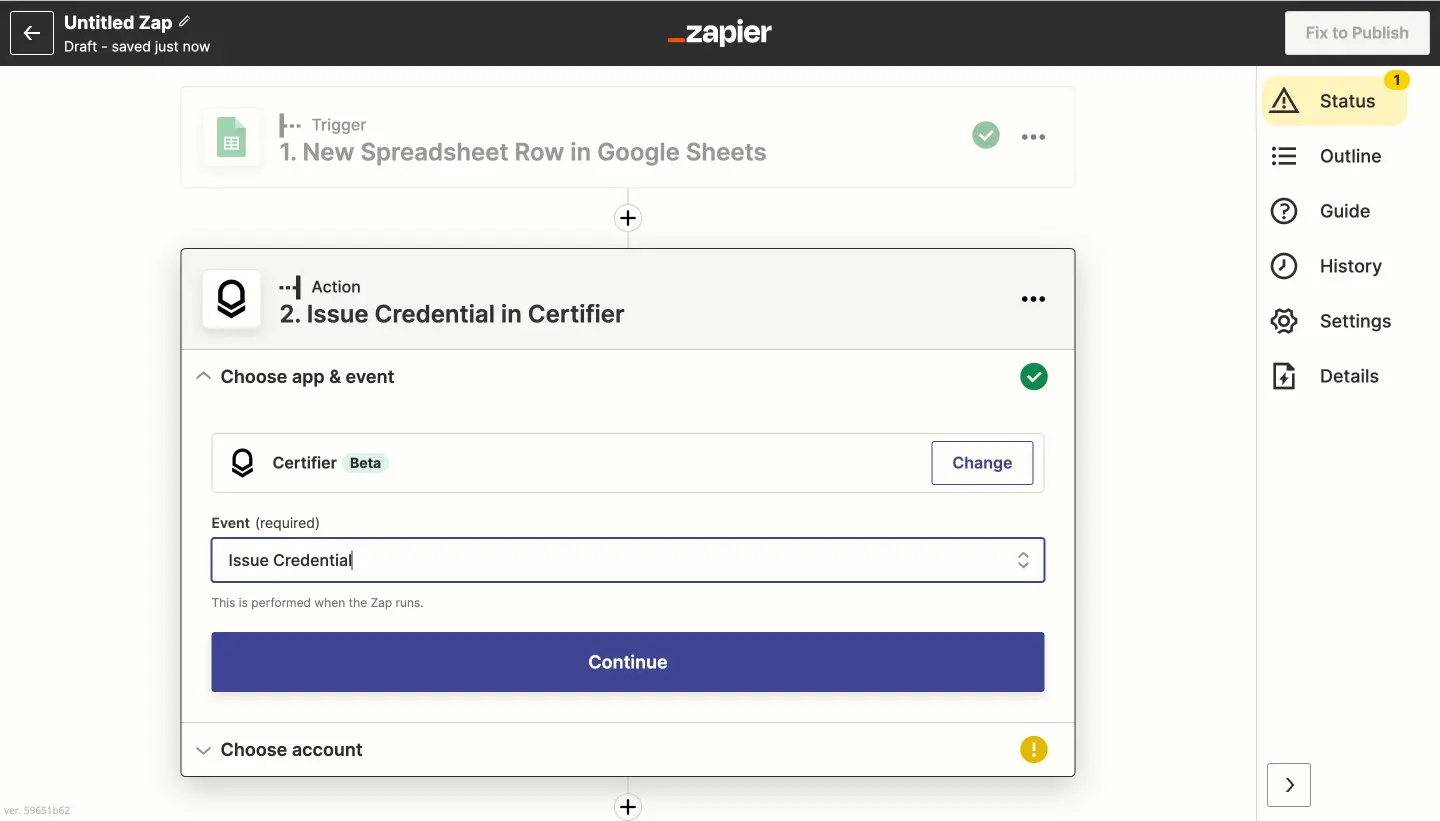
7. Choose your Certifier account and integrate it with Zapier via access token. To generate an access token, go to Certifier -> Account -> Settings -> Developers -> Access Token and press "Generate Access Token".
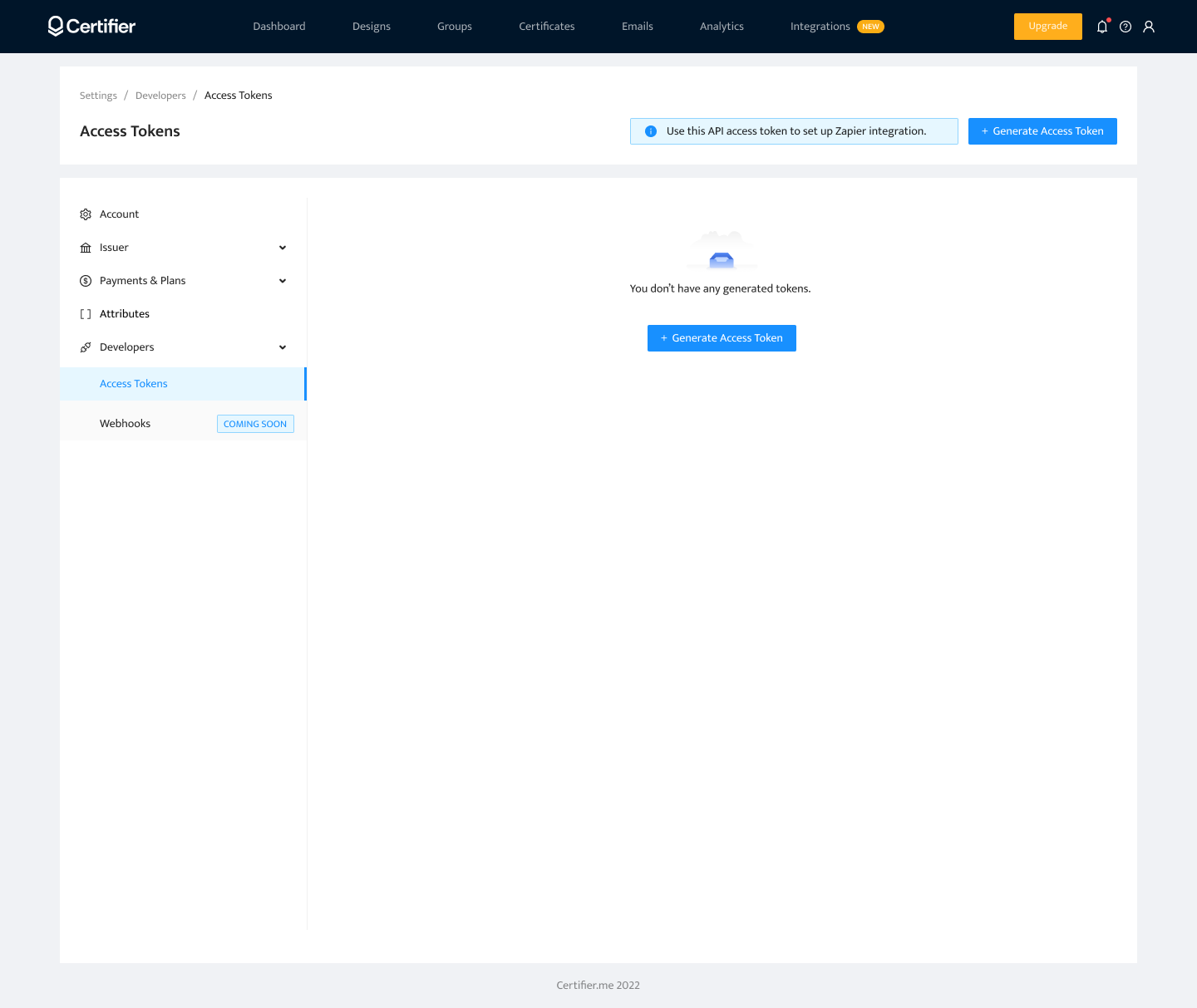
❗️IMPORTANT: Please, keep in mind that for security reasons, Certifier shows your access token just once. Copy and paste it straight after it is generated. Consider storing your access token in a secure place to set up other integrations.
8. Populate the fields in the action section:
Group – select a group that will be used to distribute certificates to.
Recipient Name – the name of your recipient. Note: some apps store names and last names separately. Thus, you will have to add these two attributes to the Recipient name field with a spacebar between them.
Recipient Email – the email of your recipient.
Issue Credential – select whether you want your certificate to be automatically issued once your Zap is triggered (the field is set to True) or whether you wish to save credentials as draft and publish them manually from Certifier dashboard (the field is set to False)
Issued on – the date when your certificate is issued (by default it is the day when your Zap is triggered)
Expiry Date – the date of your credential’s expiration. By default, there is no expiration date added.
If you see some other inputs, it means that there are custom attributes on your account. If you want to add some specific data from your Google Spreadsheet, you can create a custom attribute in Certifier and populate that field with the appropriate data
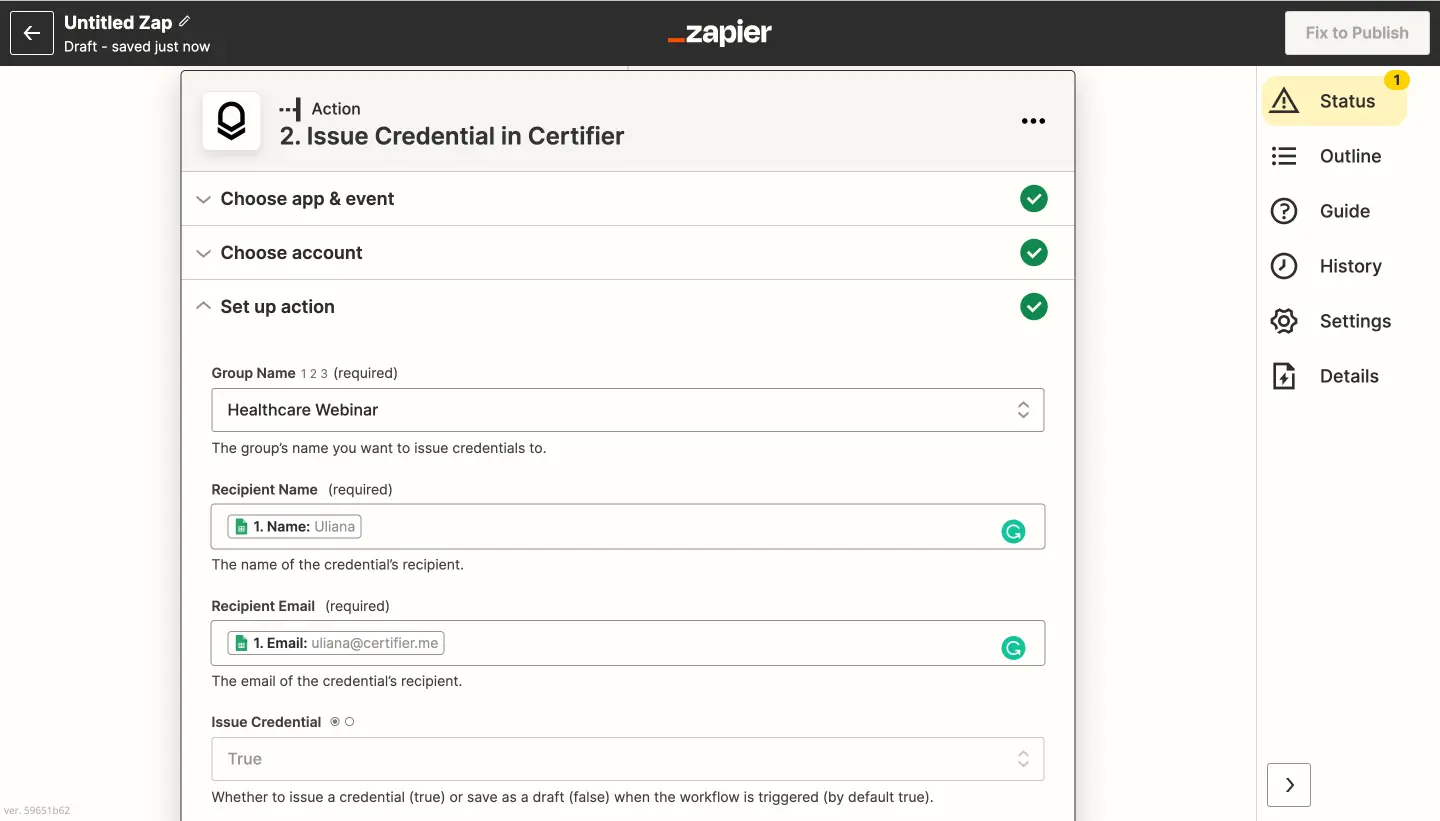
9. Finish the process of setting up action by running a test. Running a test ensures that everything is set up correctly.
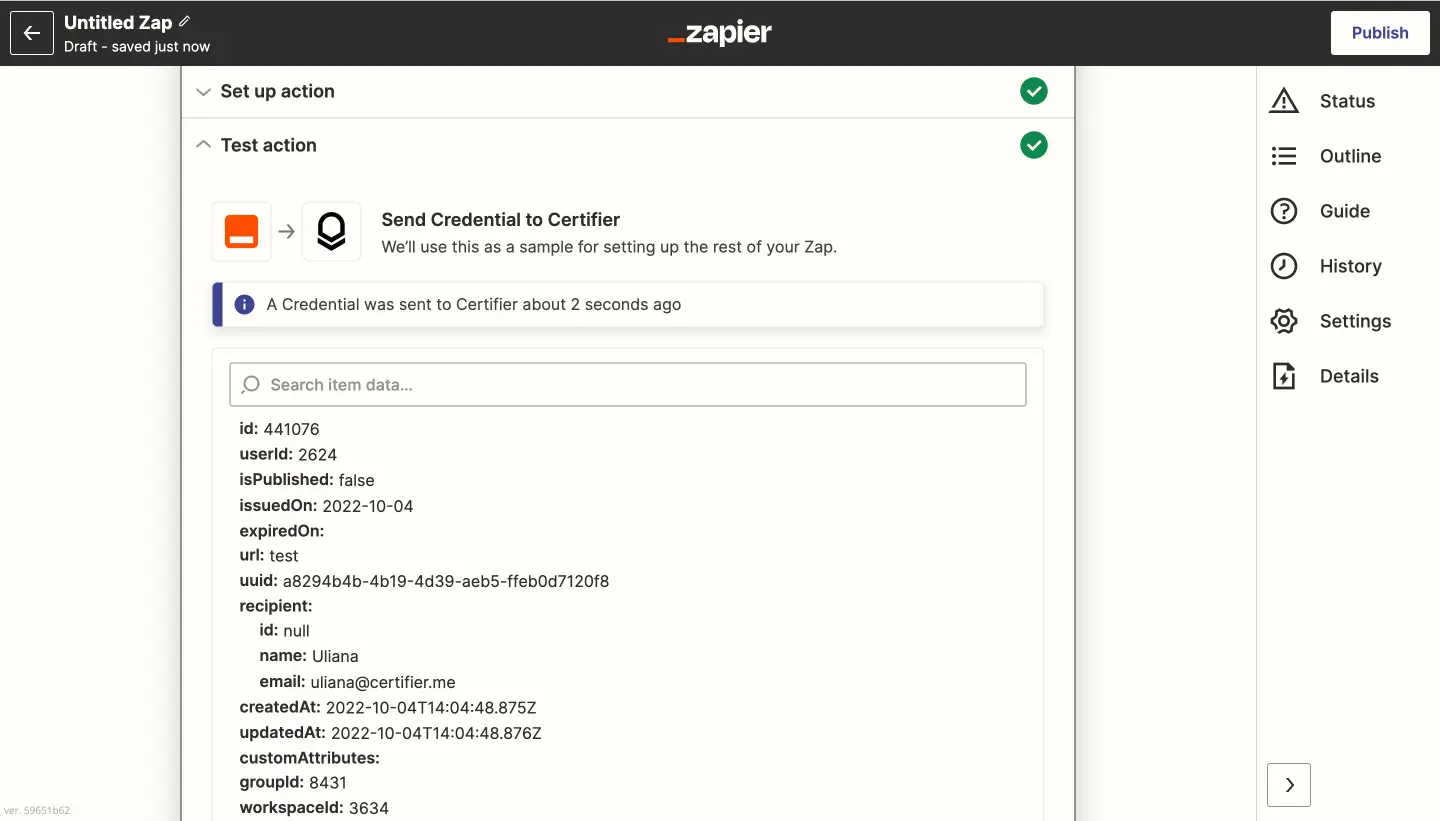
If the test is successful, you will see a newly issued certificate in the Certificates section of your Certifier account. Don't worry, it is a test certificate with dummy data.
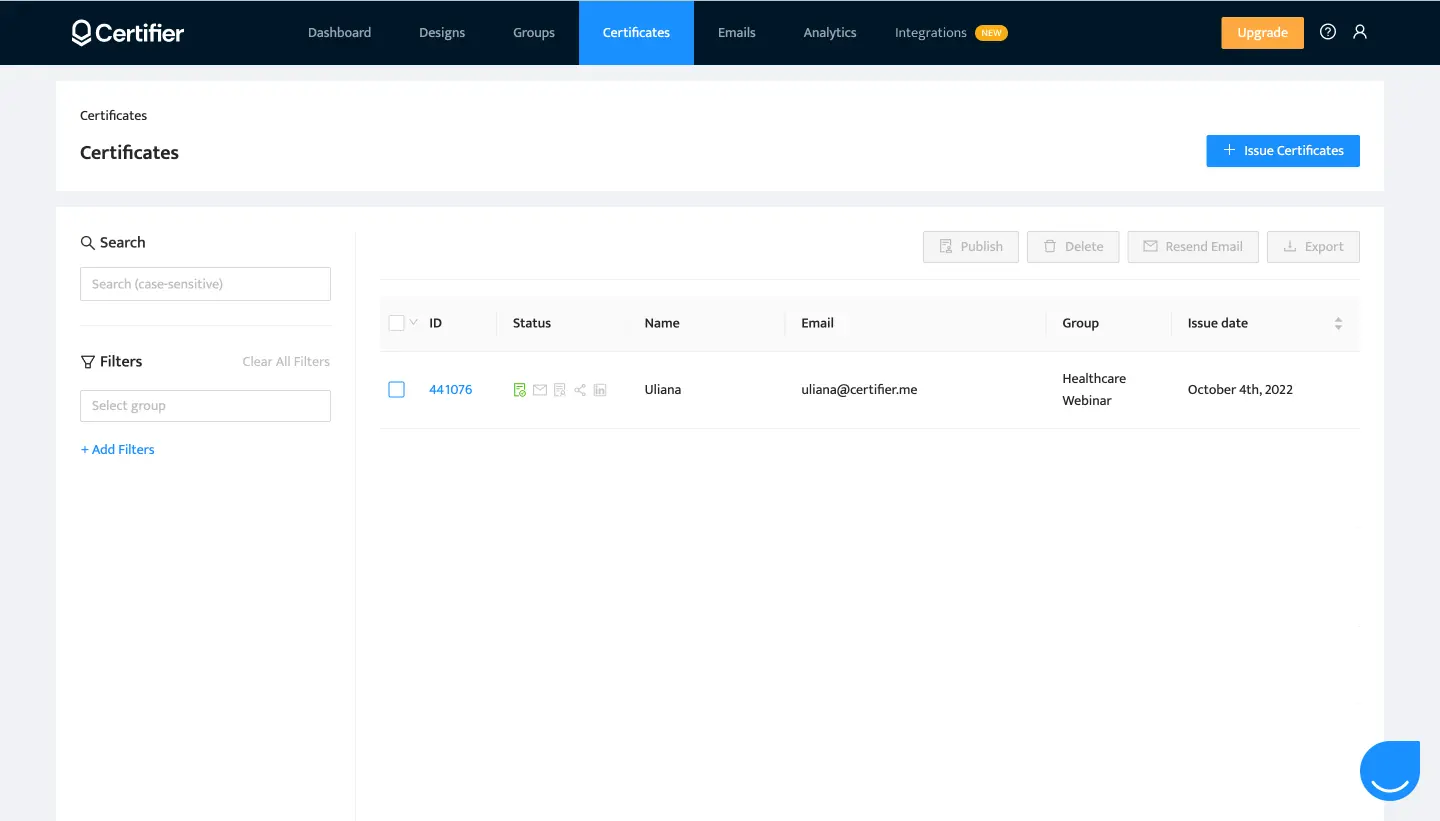
10. Click "Publish Zap" and enjoy the beauty of a fully automated certification process 🥳

- Product Management
- Customer Research
- Digital Credentials
- Product Strategy
- Design Systems
Product Manager
Uliana leads product management at Certifier, using her UI/UX background to explain platform features and help organizations maximize their credentialing capabilities.
